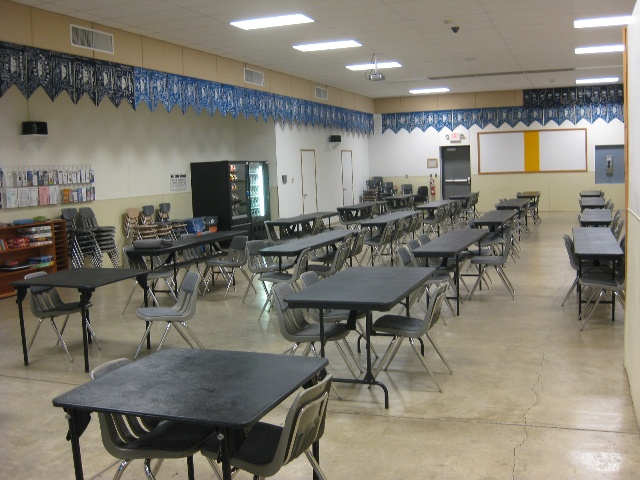
No doubt, perhaps the highlight of any inmate’s day, week, or month is when his/her name is called for a visit. This is the time (in most prisons, I believe) when inmates are able to finally have the much needed physical contact with the people who mean the most to us. The brief hug and kiss we are allowed at the beginning and end can of the visit can be enough to sustain us for an entire month. It is a time of jubilant conversation and unbridled joy that, for moments throughout, can allow us to “forget” where we are. Ah, yes, the coveted visit. But what about when it comes time to say goodbye to friends and family? What is the impact of this part of the experience?
Please, allow me to explain what happened at a recent visit. I had a great time with my twin brother, older sister, twelve-year-old niece and eighteen-year-old nephew. We caught up on what many of my friends had been doing, what certain extended family members had been up to, and had fun discussing other trivial matters. We shared popcorn, drank soda, took pictures, and all-in-all enjoyed our three hours together on a Sunday afternoon. When the visit came to a close, I hugged and thanked them for traveling such a long distance to see me. I then sat down and waited for the remaining visitors to line up along the wall to be escorted out by the correctional officer working in the visiting room that day.
To my right (approximately five feet away) I noticed a small boy clutching his dad’s leg. The inmate hugged his toddler son with deep affection and told him, “Daddy loves you, Son. Now you have to go to Grandma so you guys can leave, ‘k?!” The small child reluctantly released his dad’s leg and jogged to his caretaker standing in line. As the line of visitors began to file out, the little boy was looking over his shoulder while continuously and emphatically waving to his confined father. Then, in a sudden flash, the child broke away from his grandma’s grasp and darted back to be with his daddy. He again clutched the man’s leg, only this time his grip was much tighter than before. The father again bent down to comfort his child as best he could, and I could see the anguish was just as powerful for the adult as it was for his child. The officers witnessing this human event, surprisingly, did not intervene, presumably because they understood interrupting this few seconds of profound emotion and connection between a father and son would have been nothing short of cruel and inhumane. After several seconds, however, the boy again returned to his grandparent for good at his father’s urging.
I returned to my cell that afternoon experiencing many emotions. On one hand I was filled with joy and peace for having just spent precious time with my family, but I also felt a sense of dejection as I was confronted with my own reality that while they freely walked out of the prison and returned to life as they know it–the same way of life I took for granted–I also had to return to mine. In conjunction with these emotions, I also contemplated the mental and emotional strain that that father and son were undoubtedly suffering in that very moment. Sure, having an opportunity to visit our loved ones is greatly appreciated and I’m thankful every time I receive one; but the agony that ensues when it’s time to depart, well, that part I could live without.





Tears….
Well said and all so true!
Jamie, who i write about on my blog has had only one visit in ten years that didn’t have a sheet of plexi-glass in between. Visits period are very rare. His son was born after he was incarcerated. My daughter went on with her life and isn’t interested in taking their son to see him. His last visit was 2 1/2 years ago when I went to Tx to visit. It is heart breaking. All he wants is to get out so he can be a father to his son. It is the only positive thing in his life. I do everything I can to get him news so I can share it. This past Christmas he had $2 he wanted to send me to give to his dad so he could by a soda. That was the best present I could have given him, telling him that. Hopefully in a few months I will be able to go visit again.
SonniQ, passing this on from Martin:
Dear SonniQ,
Thank you very much for your interest, thoughts, and response to my book. It always humbles me to hear how people I’ve never met read my story and was moved in some way. It’s encouraging to hear you say, “He was a success story when it could have easily gone the other way.” I attribute that to God and a lot of people who love and support me and what I aspire to do. Thank you for recommending the book on your blog as well — I appreciate that very much.
It sounds like you are Jamie’s primary support system. I commend you for that as I know it is not easy on you to do that. I pray that he is released soon. I think it’s tragic that he is not able to have any type of relationship with his son, especially since I have no doubt that his son is yearning for a relationship with his daddy. Unfortunately prison robs countless children of the opportunity to have meaningful relationships with their fathers. Obviously I don’t know the circumstances of your daughter and Jamie’s relationship, but my heart goes out to your grandson who is being deprived of bonding with his father. It nearly brought a tear to my eye hearing how his son wanted to give his daddy $2 to buy a soda. Kids are always the innocent bystanders harmed through this situation. I pray he and his son are able to reconcile when this is over. But in the meantime you are his angel, keeping him going in every way. I’m sure he tells you often as possible how much he appreciates you.
To personally answer your question, yes, I DO know how fortunate and “lucky” I am to be where I am, receiving the kind of services I am while incarcerated. Indeed, medium security and maximum security are worlds apart, and many inmates in maximum security prisons are treated worse than even unruly animals. It’s a disgrace that we allow such inhumane treatment of humans in our penal system, but we do. People are not outraged enough because it hasn’t happened to their family members directly. It’s a shame and my heart goes out to you, Jamie, and his son who has no idea how his father is being treated in that cold, dark place. Where is he? Texas? Yeah, I’m not surprised. I’ve heard enough horror stories about Texas prisons to last two lifetimes. How come Jamie can’t apply for medium custody? Is he in trouble a lot? That tends to happen more in prisons that lack any type of rehabilitative opportunities — not that I’m making excuses for misconduct because it still comes down to an individual choice. But certainly there’s more understanding in those horrid conditions why someone may act out.
You asked if I’m writing another book — yes. Actually, Adopt an Inmate will be helping me with the publishing process. I’m extremely grateful for their care, compassion, and willingness to help make prisoners’ lives more meaningful and manageable. My second book is actually a collection of a year’s worth of blogs that I wrote in 2014 that were dedicated to the important topics of how prison affects inmates and our families and loved ones. I wholeheartedly believe Jamie (and you) would enjoy it and find it worth your while. Oh, and we’ll see to it that the editing in this one is more consistent. 😉
It sounds like you are currently working on a book of Jamie’s life? Is Jamie contributing to it too? How far along are you? I hope you’re enjoying the process — I certainly did! It was cathartic in many ways. I assume you’ll be looking to publish it, no? When do you project it will be available for purchase? Keep Adopt an Inmate informed because I’d like to buy one of the first copies.
Thank you again for taking an interest in the things I write, SonniQ. You sound like a great person with a big heart and Jamie is fortunate to have someone like you in his corner. It’s unfortunate I can’t follow your blog and comment the way you do on mine, but I will someday! 🙂 In the meantime, continue to do the good work you’re doing and making a difference in the lives of people who need it the most. Take care, SonniQ.
Sincerely,
Martin Lockett
Reblogged this on My Name is Jamie. My Life in Prison and commented:
I read Martin Locket’s book, “Palpable Irony” It’s worth reading. He was a success story when it could easily gone the other way. Look up his book on Amazon and help him on his journey as an author.
Thanks for the comment – I’ll pass it on to Martin.
On my end so far it has had 10 views. Is he still inside?
Yes, he’s awaiting a reply regarding his clemency request.
good luck to him!
Excellent comment about family visits. When we leave we do go back to our lives, but our loved ones are never far from out thoughts. We know they will get searched and will return to their cells and that makes us sad. But to not be able to have a visit would be even worse. The contact with loved ones is what keeps you going on both sides.